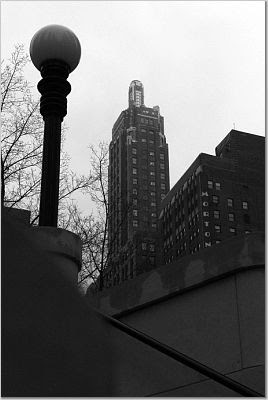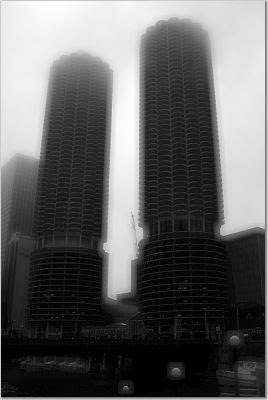Everyone traded in those days.
My ham sandwich for her peanut butter. My necklace for her dog-eared copy of The Princess Bride.
His calculator watch for my tin pencil case.
It was pink, I remember, and bore the logo of some sort of bubble gum: Bubbalicious; maybe Hubba Bubba. Whatever it was, it was the pride of my collection and he wanted it.
And how could I refuse him, particularly when his offer was so generous? He being one of the earliest crushes of my youth (Erik Estrada and Hulk Hogan notwithstanding), with his dark hair and eyes; ivory skin; that inscrutable cowlick; and a smile as ornery as it was innocent.
Kids loved him — I mean, he wasn't the playground jock (in hindsight, I don't recall ever seeing him on the playground — or in gym, for that matter) or the class wunderkind. But he was a good kid all the same, and even I — at the young age of eight — could see it.
And so it was to him that I parted with my beloved pencil case, making regular visits to his desk to see what treasures it stored. And in turn: he'd give me the occasional scented pencil or dinosaur-shaped eraser.
You know — valuable stuff.
The school year passed in kind, and then the summer, but then a funny thing happened when classes resumed:
He was nowhere to be seen. Not in my homeroom, not in any. He had disappeared as if overnight, an absence not easily missed by the dozens of kids who listed him among their friends.
In time we learned that he'd transferred to another, much larger school in our county for reasons that remained unclear. But he was somewhere, at least, and we took solace in knowing that he hadn't yet vanished from this planet altogether.
At some point that year, a class field trip took us to the county courthouse for a mock signing of the United States Constitution. Rumors quickly began to circulate that Steve* was there — that he was part of the elementary school choir belting out patriotic tunes from the rafters.
I looked for him as my class rounded the building, eventually entering into the room where kids my age were dressed in robes. I looked up to see him smiling down, breaking form to wave to me (and perhaps whoever I was with — I seem to have blocked out the the faces of my companions in this particular memory). I waved back, smiling, wondering if his new school desk housed that old familiar tin.
***
It is funny to me how sometimes the particulars of a memory will escape me: like the faces of my friends on that trip, or the actual grade I was in when my classmates and I split into smaller groups and played a game designed to generate discussion of current events (not to mention, learn more about our peers).
The game went a little like this:
You'd draw a card that asked a Yes or No question about a current event with an ethical twist that forced one of your classmates to determine how they would handle a situation. So you'd draw your card, read the question silently to yourself, write down on a piece of paper the person in your group that you were going to pose the question to, and then whether your felt their answer would be "Yes" or "No."
When Todd drew his card and then turned to me, I wasn't nervous in the least. From a young age I'd had an understanding of worldly, political events — couple that with my firm belief system, and I had nothing to fear.
Until I heard his question.
"If you were the principal of an elementary school and you found out that one of your students had AIDS, would you allow them to stay?"
I should add here that the
Ryan White story was not far removed from us, neither in distance nor in chronology (in fact, Ryan was the age of my older sister). And so much the particulars about the disease (including its pathology) hadn't yet reached the masses. There were rumors that it could be transmitted through sweat; there were rumors of angry, HIV+ patients spitting on the open wounds of non-infected people in hopes of contaminating them. We didn't know yet if mosquitoes, in all their blood lust, could transmit the virus, and suddenly the idea of being "bitten" was more than just a minor inconvenience — it was something to lose sleep over.
All of these thoughts buzzed through my pre-pubescent mind as I formulated my response, still fumbling for words and pleading to be allowed to qualify my response.
"Well, can we make sure they don't participate in activities where they could get hurt?" I asked. "And will all of their teachers have rubber gloves just in case?"
But my inquisitor wouldn't allow exceptions. "I think you just have to answer 'yes' or 'no,'" he said.
My babbling persisted all the same: I said that it was very unlikely to be the kid's fault that they were sick, and I'd really like for him/her to be able to stay, but we knew
so little about the disease. I said I worried about how the kid would be treated if other students found out, with my response fluctuating between nervous extremes: more sweat oozing from my pores in those few minutes than in all the hours I spent — years later — huddled into a computer lab taking comprehensive exams for my graduate studies.
Todd looked at me, a curious expression magnified (and yet distorted) by his bottle-cap glasses.
"I guess since we know so little..." I paused. "And since I can't guarantee anything... I'd have to say 'no' — at least for now. But maybe once we learned more, that could change."
"So you're saying 'no?'" he asked.
"If I have to choose one or the other with so little information — yes. I'm saying 'no.'"
"Wow," he said, throwing his card onto the table. "I thought if there was anyone in this room who'd say 'yes,' it'd be you."
I don't believe I've ever been quite so ashamed of myself.
***
Again, years become hazy as I cannot recollect the day it was when I saw his picture in the paper, a friend having called to tell me to turn to page three.
I didn't recognize him at first: only the name, there in bold at the top of the page, followed so loudly by his age —
was it 18? Was it 19? Maybe 20? Why can't I remember?!"Oh my God," I said. "What happened?"
I read the obituary looking for the tiniest morsel of a detail. But little was given — just enough to make us wonder as the rumors circulated, later to be clarified as fact.
He was a hemophiliac, an illness that created the need for transfusions at the most unfortunate time in our nation's history.
And however long he was
sick, none of us knew. Did he have
it when we knew him? Did he know? Does it matter?
And I wish I could fill in the gaps. I wish I could paint — beautifully and flawlessly — the recollections of my life.
Because there are times, I swear to you, when I hope to God that I was asked
that question (as I believe I was) two or three years
after he had disappeared from our school. That he never had to hear me say that — yes, Steve, if it'd been up to me — that I may have lacked to courage to stand up with my friend.
That cute boy with ivory skin, dark eyes, a cowlick, and a mischievous grin.
And yet: somewhere in my mind's eye I imagine him joining us as that table, his face a curious mixture of fear and disappointment as I clumsily worked my way to my final response. And once again I feel, burning deep in the pit of my stomach, a certain shame that will never be undone.
*Not his real name.






























